
משאבי ספרייה
אוסף משאבים זה נאסף על ידי חברי InterAct ומתנדבים כדי לעודד למידה על ישראל/פלסטין. האם אתם רוצים לדעת מה המשמעות של ציונות עבור יהודי ישראל? איך נראים החיים של הפלסטינים בעזה? סיפוריהם של אנשים שהתאחדו במאבק לשלום? הנושאים כוללים: היסטוריה, חברה ורומנים
התאריך
סקירה היסטורית
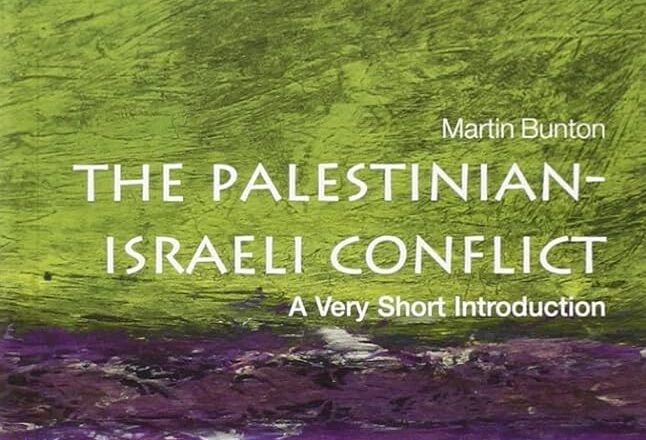
Book
The Palestinian-Israeli Conflict: A Very Short Introduction by Martin Bunton
A blazingly short crash course in the conflict, split into successive periods that each build upon the last. This is an introduction meant as a first step to familiarize readers with the basic events and shifts over the roughly 150 years of Jewish settlement in Palestine.
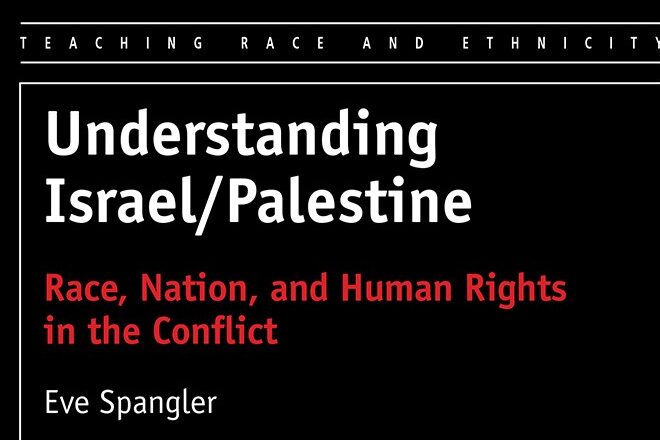
Book
Understanding Israel/Palestine: Race, Nation, and Human Rights in the Conflict, by Eve Spangler
This book is written for people who want a point of entry into the conversation. It offers both a historic and analytic framework.
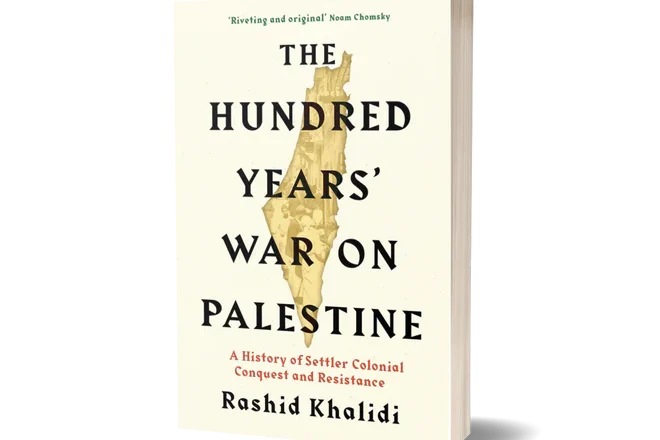
Book
The Hundred Years’ War on Palestine by Rashid Khalidi
Khalidi here covers the history of conflict in Palestine from a Palestinian perspective. Khalidi merges his overarching historical analysis with narrative history of his own family, members of which were often directly involved in events at a high level.
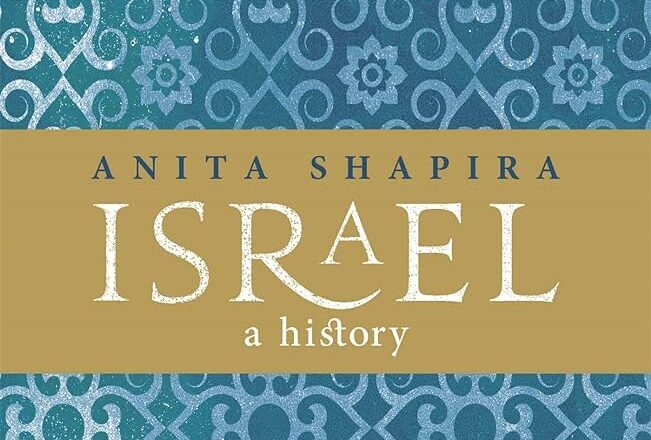
Book
Israel: A History by Anita Shapira
A history of Israel and Zionism from the European Jewish perspective. Covers the origins of Zionism as one of several reactions to European antisemitism, early relations between Jewish settlers and Palestinians during the Ottoman Empire, the direction that the Zionist settlement project evolved, and the debates and features of Israeli identity-building.
מקורות וספרים עיקריים
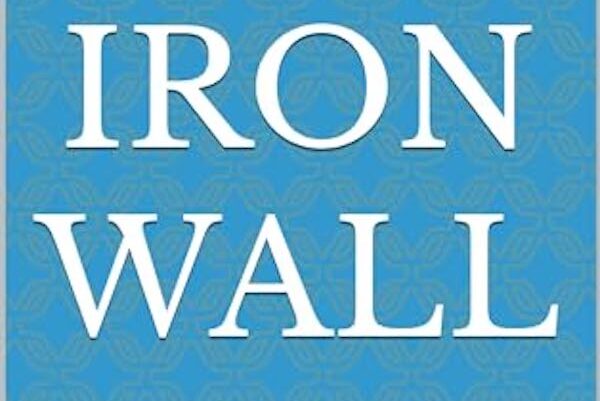
Book
The Iron Wall by Zeev Jabotinsky
Ze'ev Jabotinsky (1880-1940) was an ardent Jewish nationalist, the founder of Revisionist Zionism, and the spiritual father of the Israeli right .
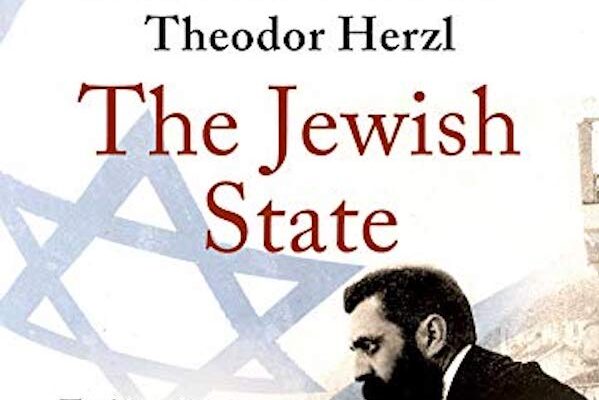
Book
The Jewish State by Theodor Herzl
In “The Jewish State”, Herzl called for Jews to organize themselves so that they could gain a territory of their own, to create institutions and forums, to oversee Jewish immigration and settlement and eventually create a state.
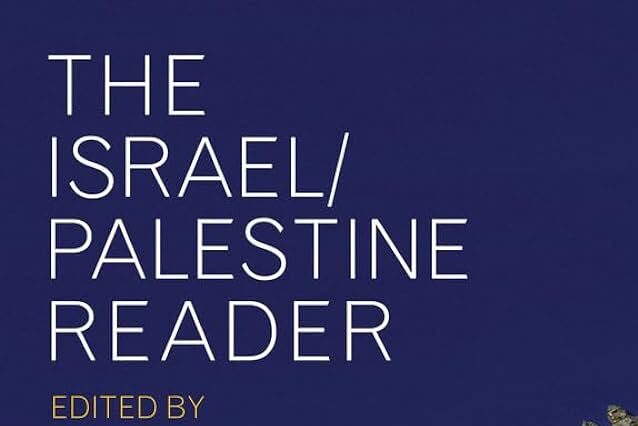
Book
The Israel/Palestine Reader ed. Alan Dowty
The first-hand narratives brought together in this Reader bring the conflict to life as seen by those closest to it
היסטוריה ישראלית
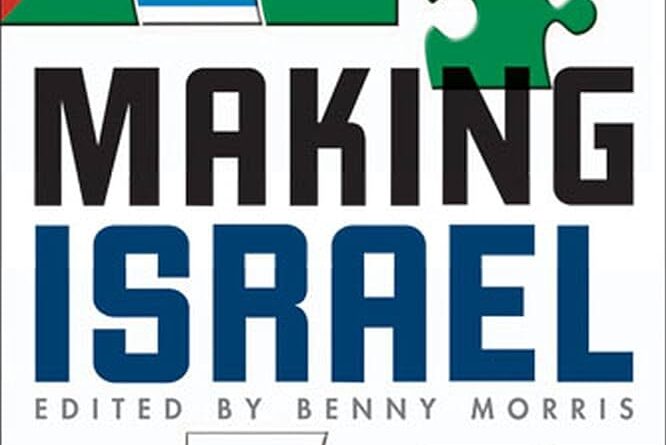
Book
The New Historiography: Israel Confronts Its Past” by Benny Morris in Making Israel
Benny Morris is one of the most renowned Israeli historians from the “New Historians” era, who revised previously held historical narratives regarding Israel’s founding and the Nakba using just-declassified Israeli government documents. He is perhaps best known for The Birth of the Palestinian Refugee Problem 1947-49

Book
The ability to unite: the Jewish resistance movement in Mandatory Palestine by Ido Yahel
This article compares and contrasts the relations among the three Jewish underground groups in Mandatory Palestine ‒ the Hagana, the Irgun and LEHI ‒ with three anti-colonial national liberation movements: in Malaya, Algeria and Vietnam
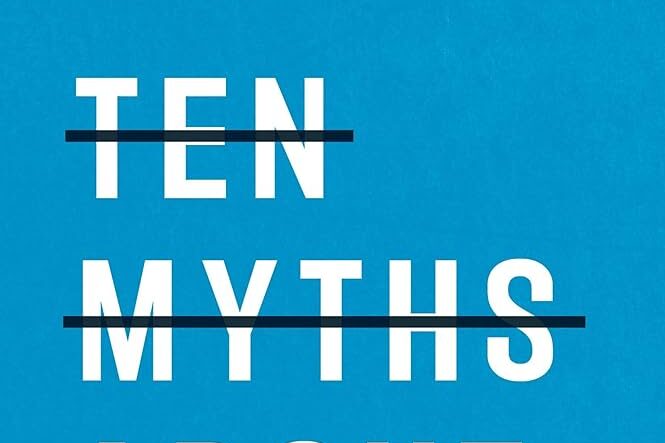
Book
Ten Myths about Israel by Ilan Pappe
In the first few pages of his latest book, Ilan Pappe states, "We need to examine the facts." He thus not only sets the tone for the coming chapters, but also takes aim at the often confusing and obfuscating debate that surrounds the political and social situation in Israel and Palestine
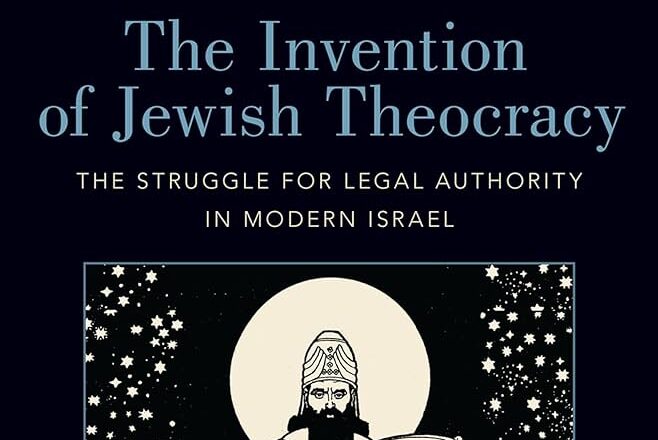
Book
The Invention of Jewish Theocracy by Alexander Kaye
The Invention of Jewish Theocracy is about Jewish religious approaches to law and politics in the State of Israel. It uncovers the forgotten history of religious Zionists who tried to create a “halakhic state” by making traditional Jewish law (halakha) into Israel’s official law.
היסטוריה של הציונות
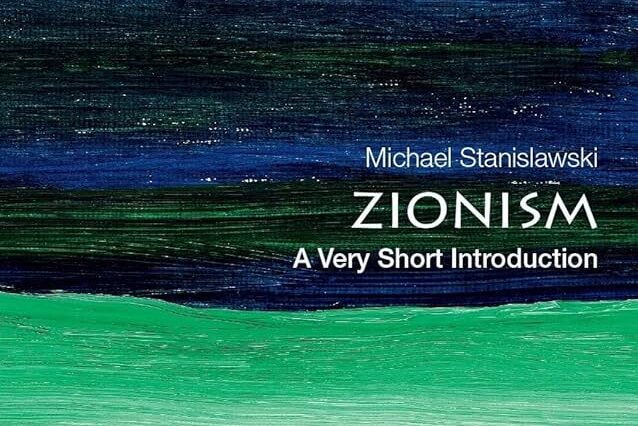
Book
Zionism: A Very Short Introduction by Michael Stanislawski
This Very Short Introduction discloses a history of Zionism from the origins of modern Jewish nationalism in the 1870's to the present. Michael Stanislawski provides a lucid and detached analysis of Zionism, focusing on its internal intellectual and ideological developments and divides
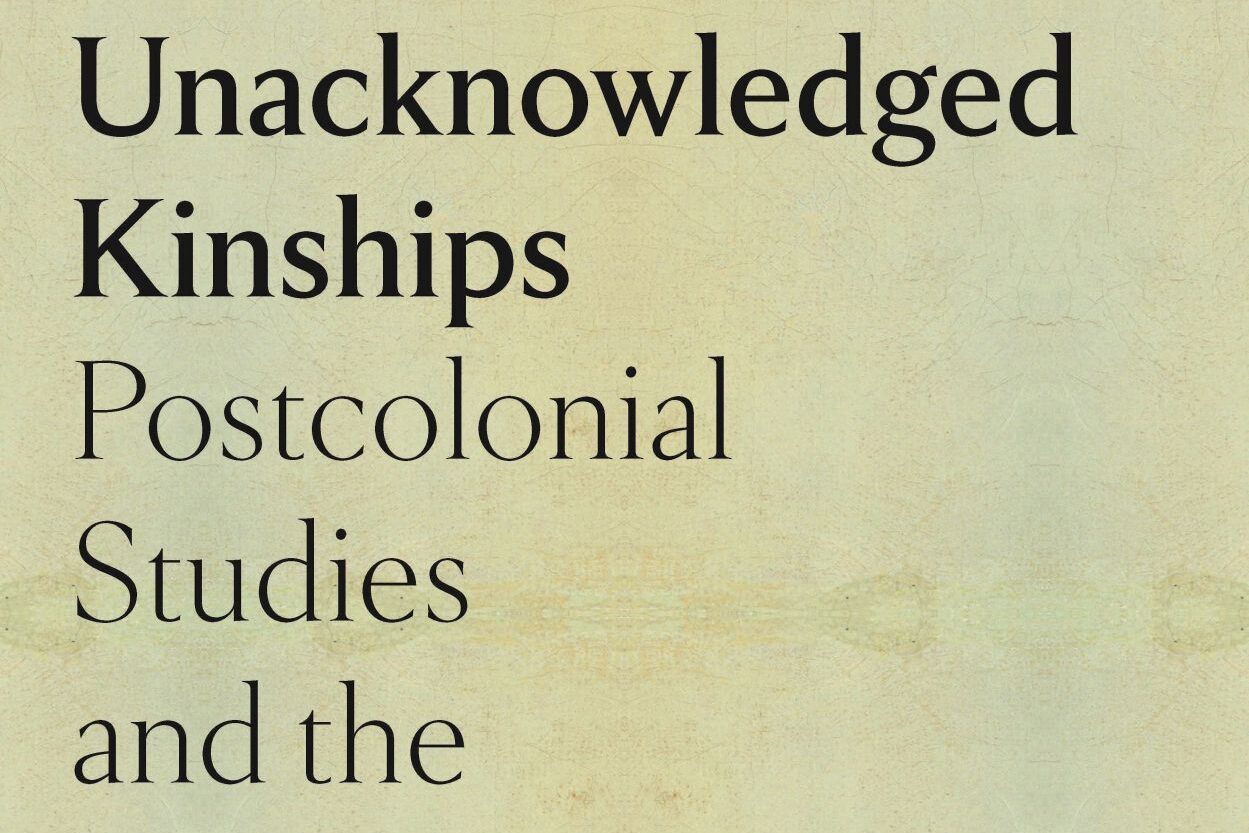
Book
Unacknowledged Kinships: Postcolonial Studies and the Historiography of Zionism, edited by Stefan Vogt
The book strives to facilitate a conversation between the historiography of Zionism and postcolonial studies by identifying and exploring possible linkages and affiliations between their subjects as well as the limits of such connections.
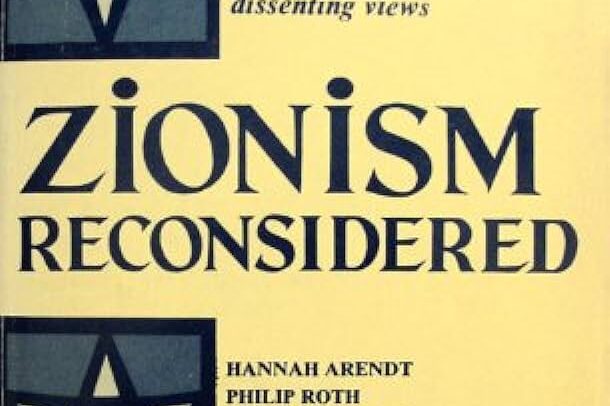
Book
Zionism Reconsidered: The Rejection of Jewish Normalcy compiled by Michael Selzer
In this volume, Zionism Reconsidered, Mr. Selzer again has achieved excellence. This time he has chosen to present the reader with an anthology of some of the greatest Jewish writings composed in opposition to "normal" political Zionism.
היסטוריה פלסטינית
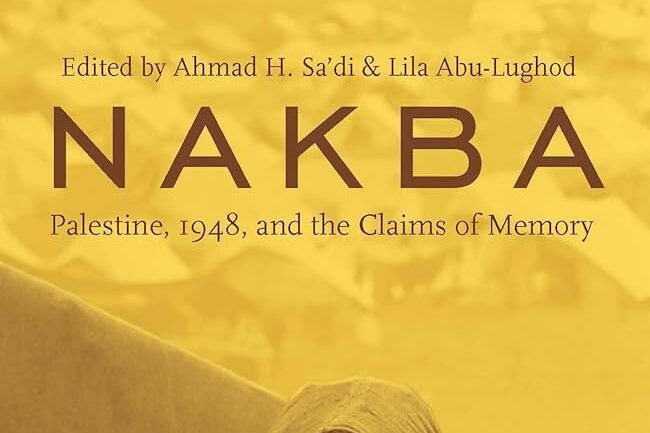
Book
Nakba: Palestine, 1948, and the Claims of Memory. Edited by Ahmad H. Sa'di and Lila Abu-Lughod
The book's essays consider the ways in which Palestinians have remembered and organized themselves around the Nakba, a central trauma that continues to be refracted through Palestinian personal and collective memory.
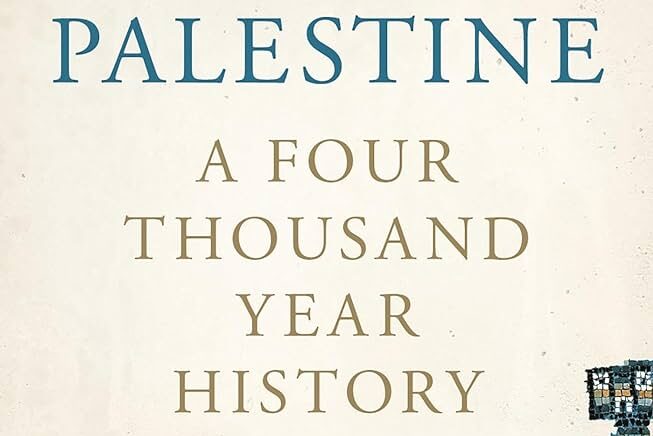
Book
Palestine: A Four Thousand Year History by Nur Masalha
Starting with the earliest references in Egyptian and Assyrian texts, Nur Masalha explores how Palestine and its Palestinian identity have evolved over thousands of years, from the Bronze Age to the present day.
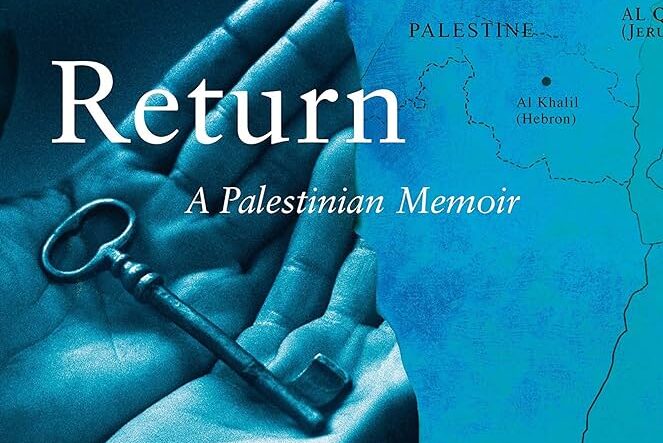
Book
Return: A Palestinian Memoir by Ghada Karmi
Ghada Karmi is a highly respected and effective commentator on Palestinian issues and for readers new to the politics of Palestine this book could serve as a very engaging introduction to its recent history.
החברה
החברה הישראלית
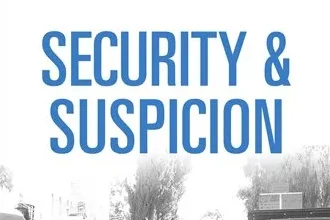
Book
Security and Suspicion: An Ethnography of Everyday Life in Israel by Juliana Ochs
In Israel, gates, fences, and walls encircle public spaces while guards scrutinize, inspect, and interrogate. With a population constantly aware of the possibility of suicide bombings, Israel is defined by its culture of security.
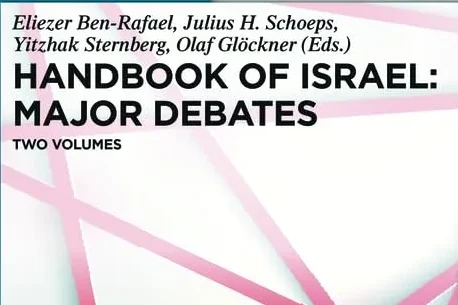
Book
Handbook of Israel: Major Debates edited by Eliezer Ben-Rafael, Julius H. Schoeps, Yitzhak Sternberg and Olaf Glöckner
Major Debates serves as an academic compendium for people interested in major discussions and controversies over Israel. It provides innovative, updated and informative knowledge on a range of acute debates.
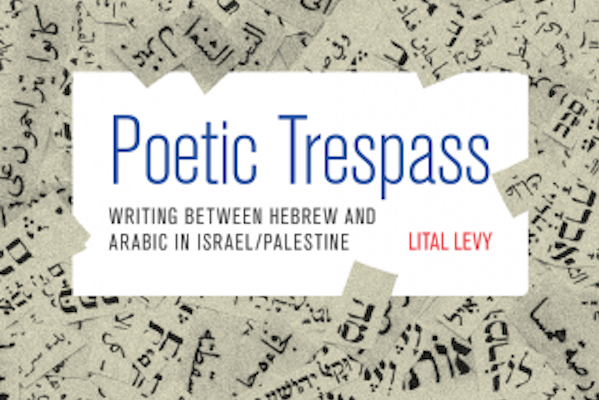
Book
Poetic Trespass: Writing Between Hebrew and Arabic in Israel/Palestine by Lital Levy
A Palestinian-Israeli poet declares a new state whose language, "Homelandic," is a combination of Arabic and Hebrew. A Jewish-Israeli author imagines a "language plague" that infects young Hebrew speakers with old world accents, and sends the narrator in search of his Arabic heritage.

Book
“Zionism’s Internal Others: Israel and the Oriental Jews” by Joseph Massad
The type of jewish culture that Zionism wanted to create had nothing to do with Diaspora culture, seen as a manifestation of oppressed Jewishness. Yiddish, stigmatized as a product of that culture, was and is actively discouraged in favor of Hebrew, while the Arabic of Arab Jews became the contemptible language of the enemy.
רומנים
רומנים פלסטיניים
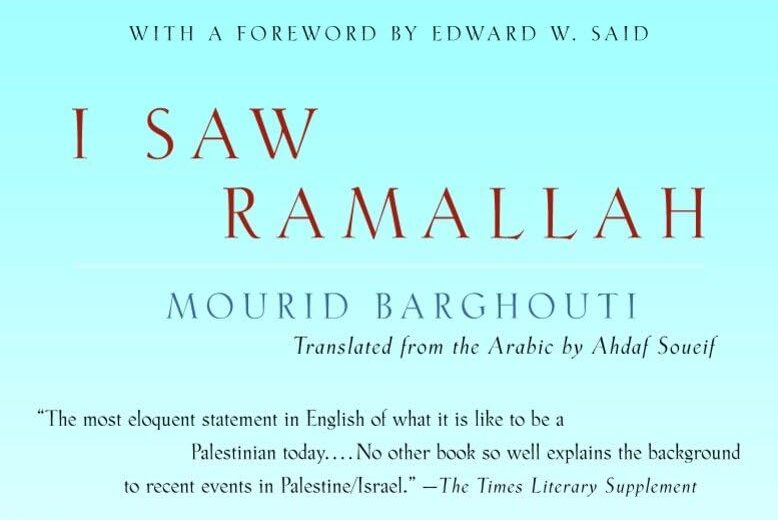
Novel
I Saw Ramallah by Murid Barghouti
Part memoir, part essay, and part prose poem, I Saw Ramallah is a poignant account of Barghouti's first return trip to Palestine after 30 years of enforced absence, a result of the Israeli takeover of the West Bank in 1967.
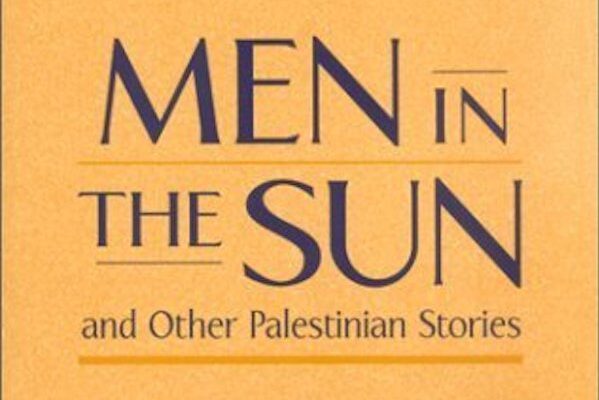
Novel
The Land of Sad Oranges by Ghassan Kanafani, in Men in the Sun and Other Palestinian Stories
Kanafani’s short story presents one episode among many of Palestinian flight from besieged cities and villages during the Nakba.
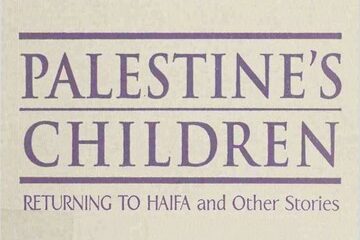
Novel
Returning to Haifa by Ghassan Kanafani
In Returning to Haifa, Kanafani writes the story of a Palestinian couple returning there after the setback of June 1967 (Naksah) for a one-day visit
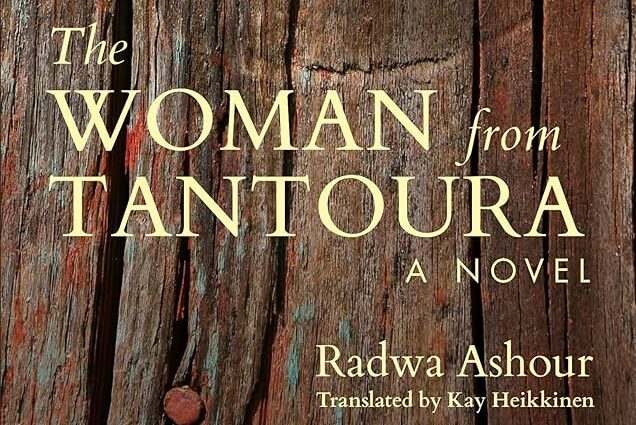
Novel
The Woman from Tantoura by Radwa Ashour
Ruqayya was only thirteen when the Nakba came to her village in Palestine in 1948. The massacre in Tantoura drove her from her home and from everything she had ever known.
סרטים דוקומנטריים
עטים דוקומנטריים על פלסטין וישראל
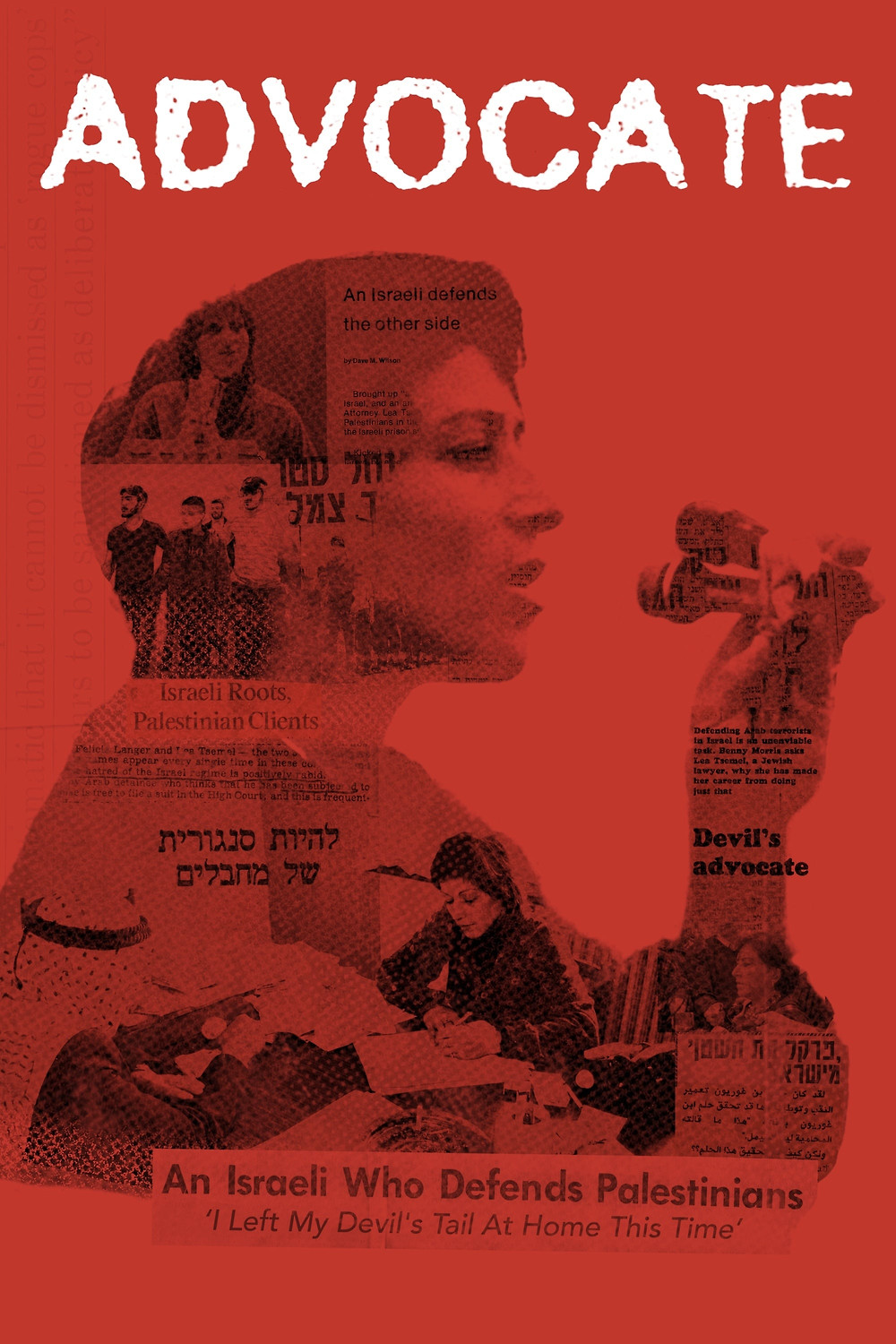
Documentary
Advocate, 2019
Lea Tsemel, a Jewish-Israeli lawyer, defends Palestinians: from feminists to fundamentalists, from nonviolent demonstrators to armed militants. As far as most Israelis are concerned, she defends the indefensible. As far as Palestinians are concerned, she’s more than an attorney, she’s an ally. «Advocate» follows Tsemel in real time, including the trial of a 13-year-old boy — her youngest client to date.
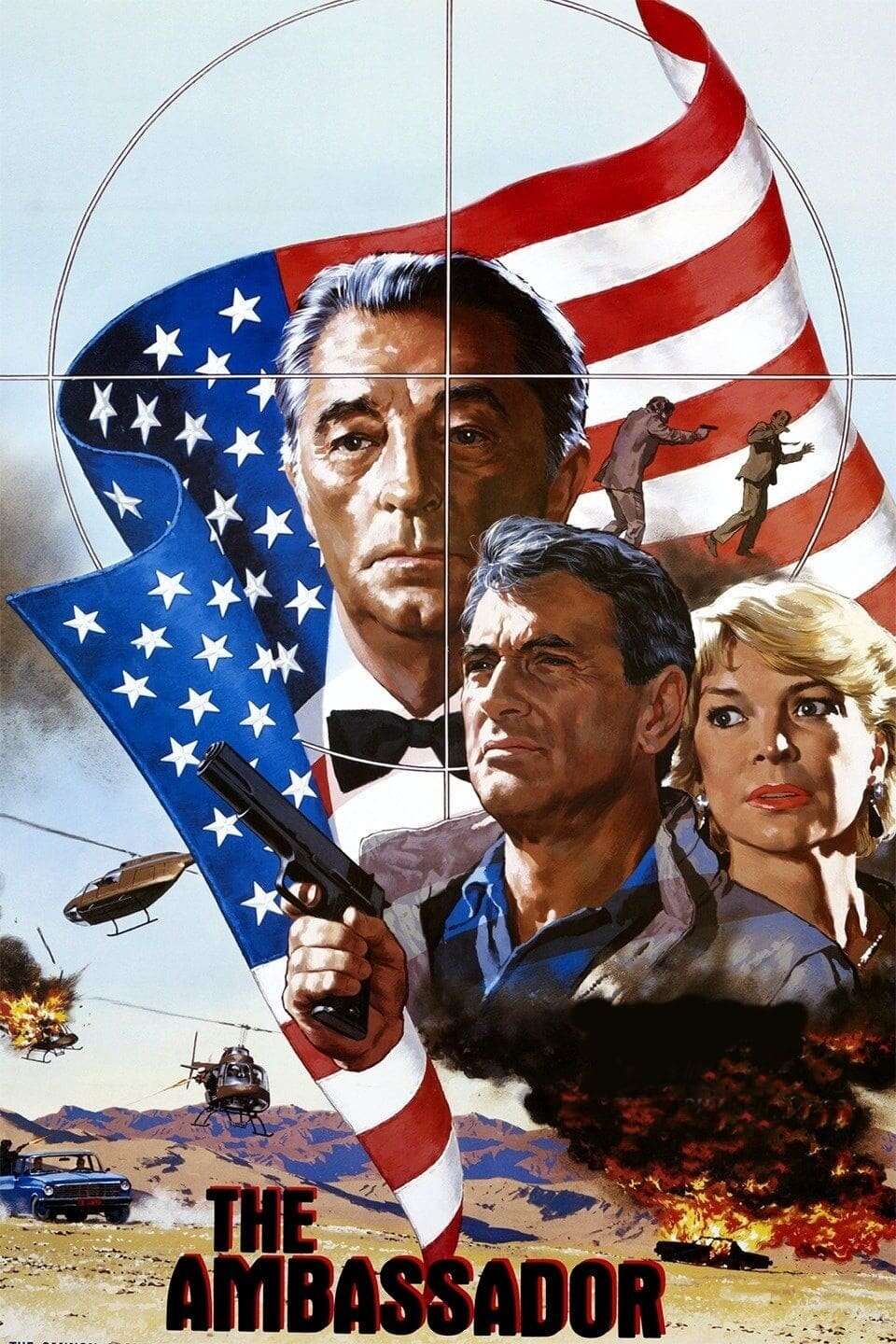
Documentary
The Ambassador, 1984
His career is in jeopardy… His marriage is in ruins… And his life is in danger… HE’S THROUGH NEGOTIATING. An American ambassador to Israel tries to bring peace to the Middle East conflict through unconventional methods, but his efforts are hampered at every turn and his personal life threatened.

Documentary
Ana Arabia, 2013
Filmed in one sequence-shot of 1 hour and 25 minutes, Ana Arabia is a moment in the life of a small community of outcasts, Jews and Arabs, who live together in a forgotten enclave at the “border” between Jaffa and Bat Yam, in Israel. One day, Yael, a young journalist, visits them. In these dilapidated shacks, in the orchard filled with lemon trees and surrounded by mass public houses, she discovers a range of characters far removed from the usual clichés offered by the region. Yael has the feeling of having discovered a human goldmine. She no longer thinks of her job. Faces and words of Youssef and Miriam, Sarah and Walid, of their neighbors, their friends tell her about life, its dreams and its hopes, its love affairs, desires and disillusions. Their relation to time is different than that of the city around them. In this tinkered and fragile place, there is a possibility of coexistence. A universal metaphor.
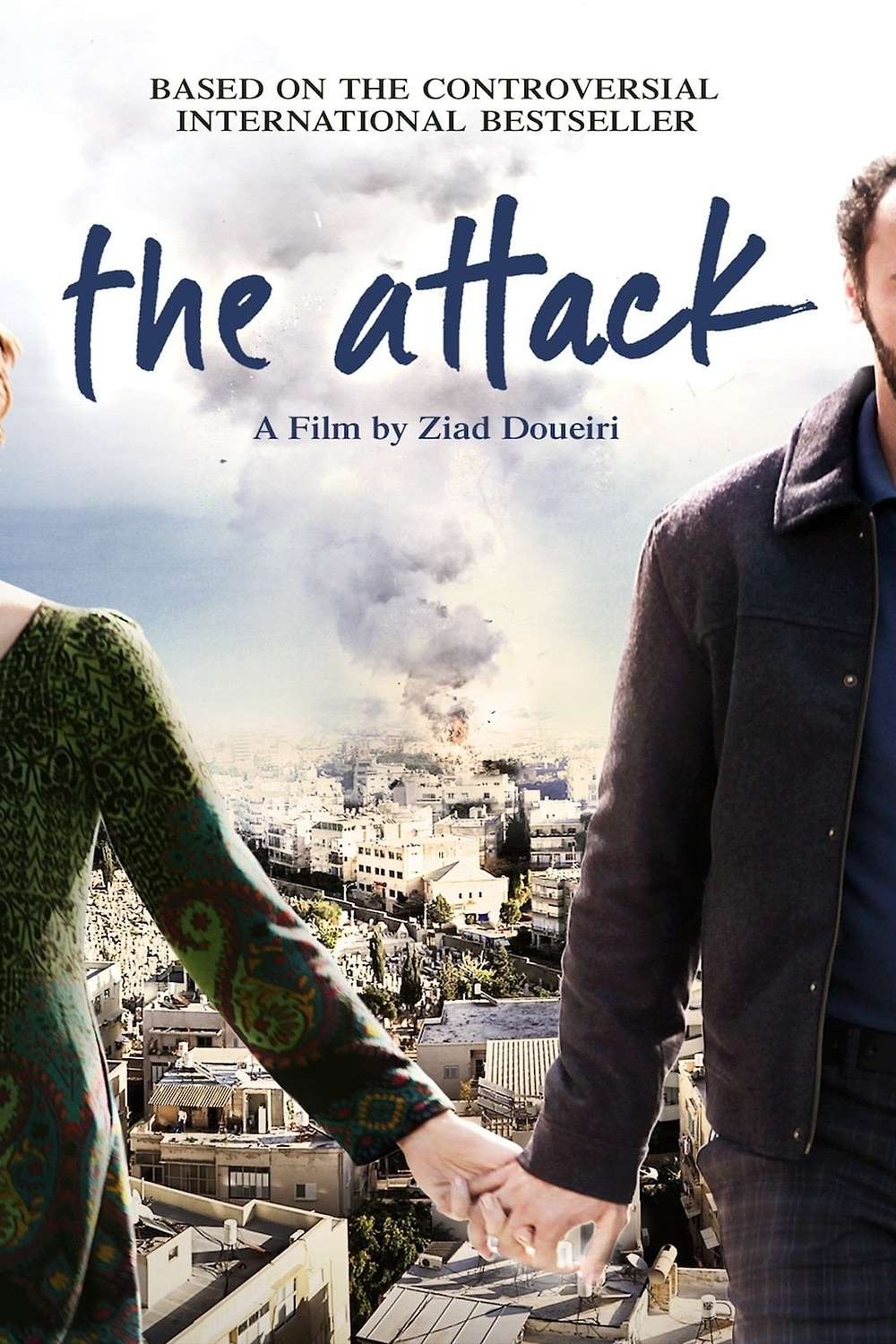
Documentary
The Attack, 2012
An Arab surgeon living in Tel Aviv discovers a dark secret about his wife in the aftermath of a suicide bombing.
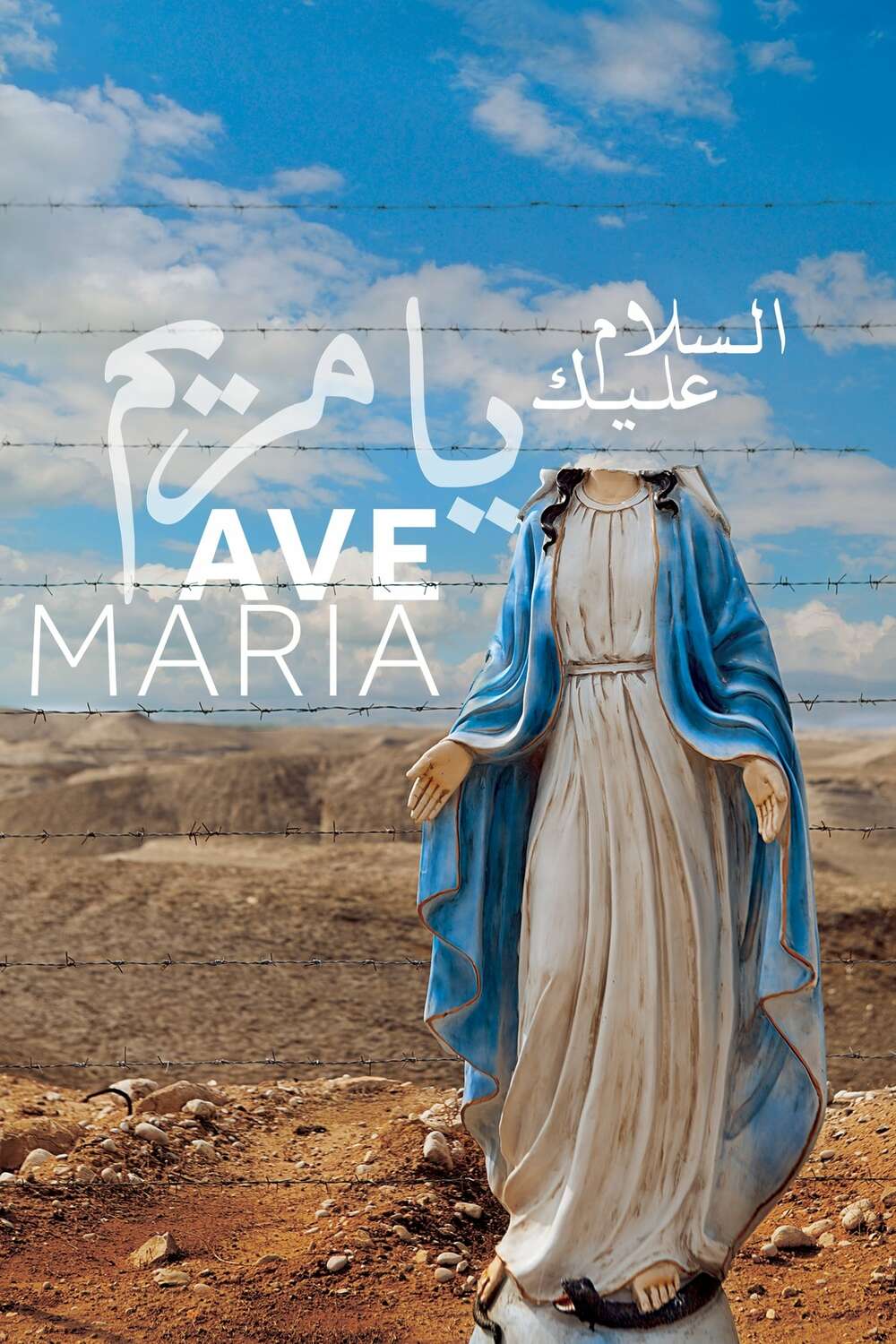
Documentary
Ave Maria, 2015
Rules are for breaking! The silent routine of 5 Nuns living in the West Bank wilderness is disturbed when an Israeli settler family breaks down right outside the convent just as the Sabbath comes into effect.
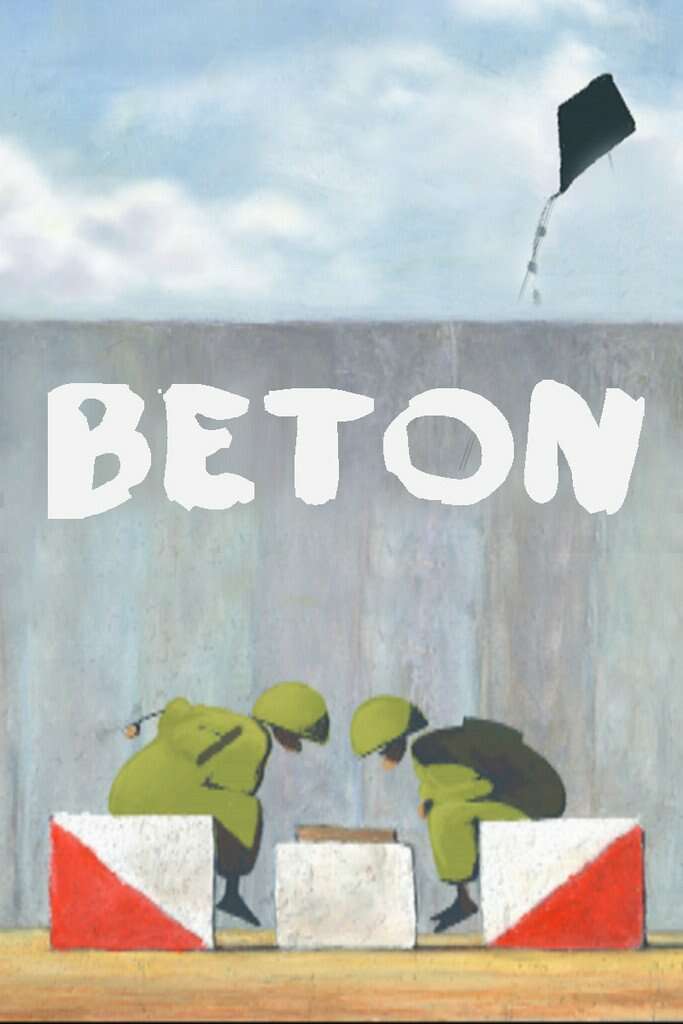
Documentary
Beton, 2006
The every day life of a military world is disturbed by the appearance of a black kite behind its high walls. The army annoyed by the existence of this kite in its clear blue sky, decides to solve the problem.

Documentary
A Bottle in the Gaza Sea, 2011
Tai is 17 years old. Naim is 20. She’s Israeli. He’s Palestinian. She lives in Jerusalem. He lives in Gaza. They were born in a land of scorched earth, where fathers bury their children. They must endure an explosive situation that is not of their choosing at an age where young people are falling in love and taking their place in adult life. A bottle thrown in the sea and a correspondence by email nurture the slender hope that their relationship might give them the strength to confront this harsh reality to grapple with it, and thereby ever so slightly change it. Only 60 miles separate them but how many bombings, check-points, sleepless nights and bloodstained days stand between them?
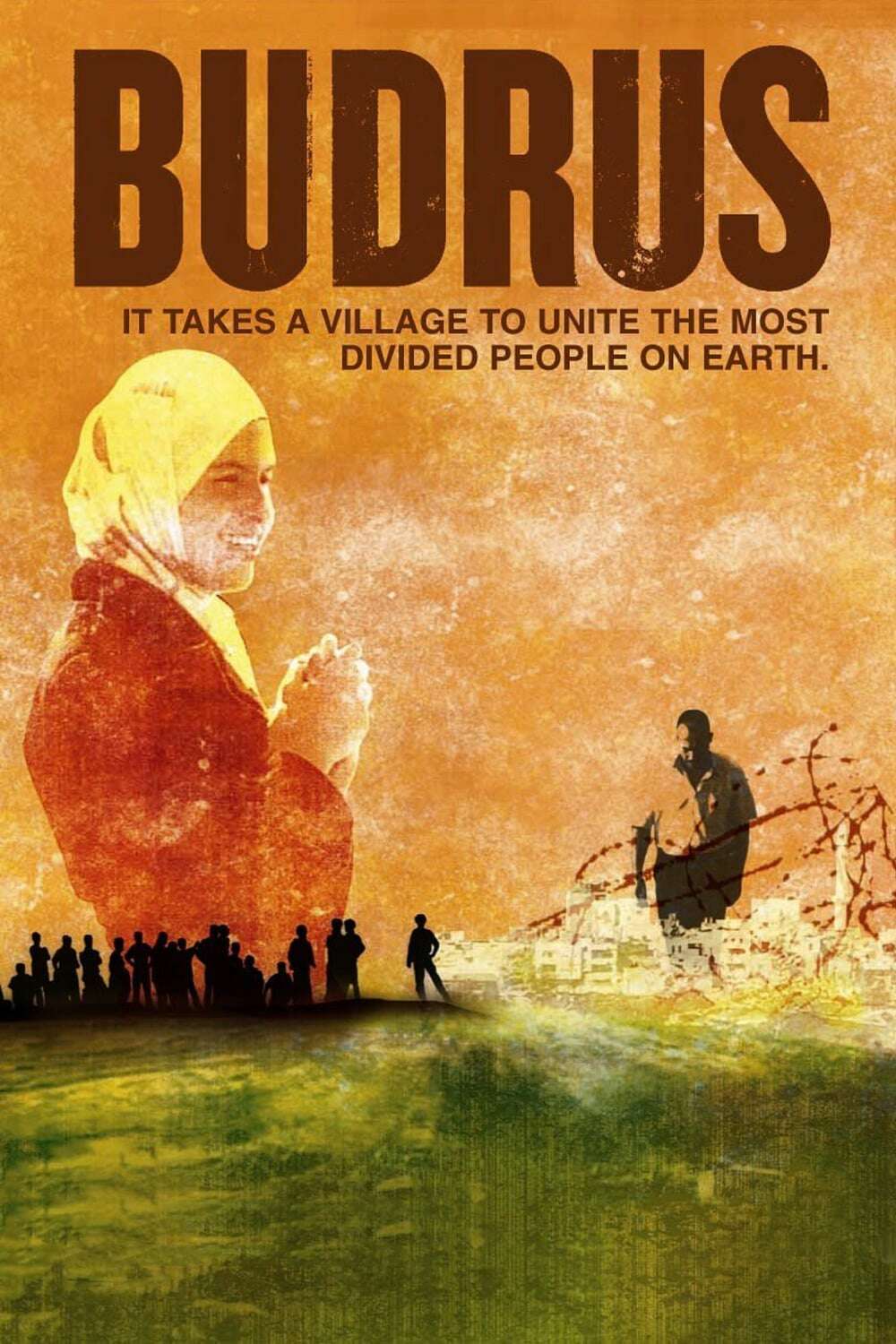
Documentary
Budrus, 2009
It takes a village to unite the most divided people on earth. Follows a Palestinian leader who unites Fatah, Hamas and Israelis in an unarmed movement to save his village from destruction. Success eludes them until his 15-year-old daughter jumps into the fray.
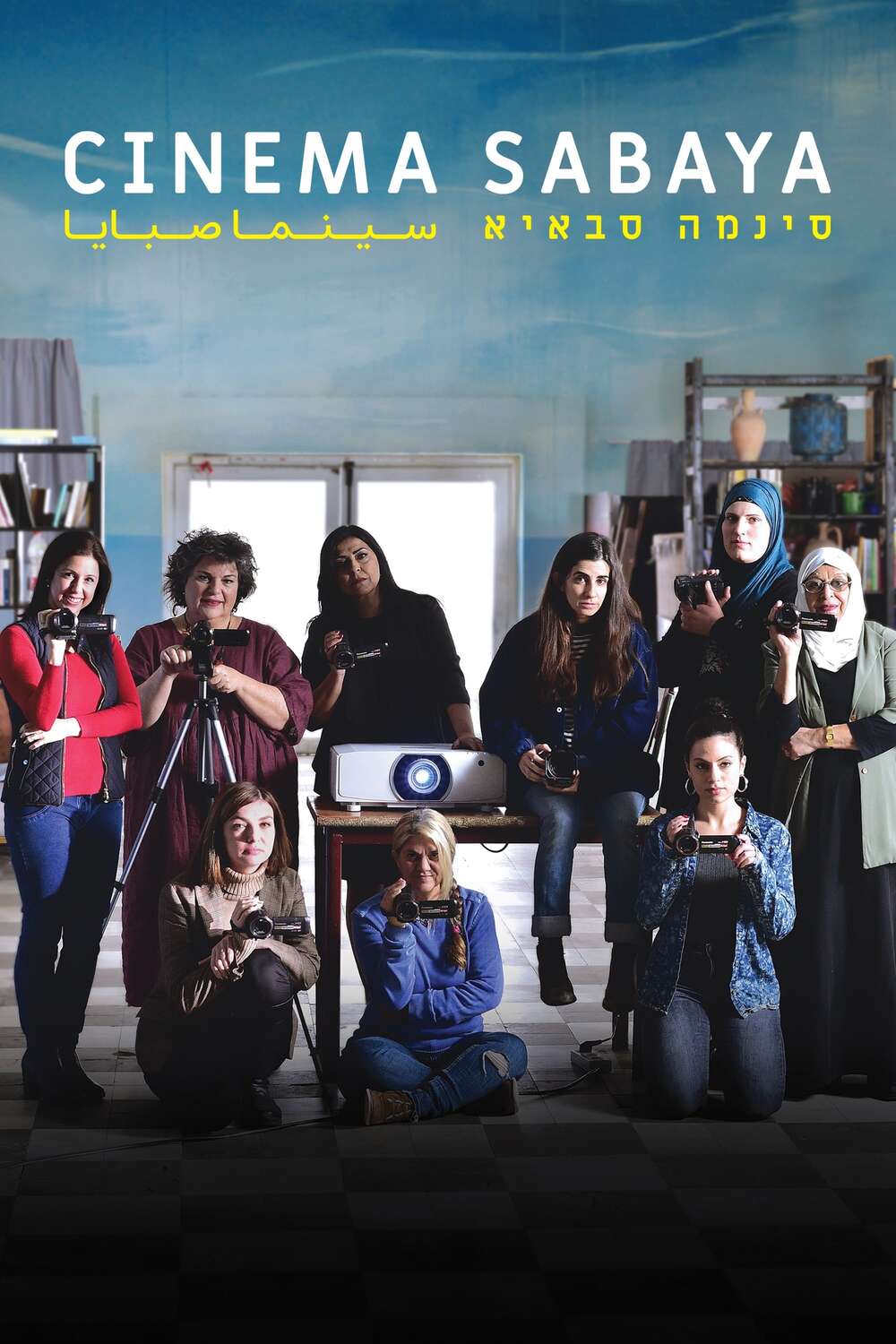
Documentary
Cinema Sabaya, 2021
9 women, 10 meetings, 1 white screen. Eight women, Arab and Jewish, take part in a video workshop hosted by Rona, young filmmaker. With each camera take, the group dynamic forces the women to challenge their beliefs as they get to know one other.
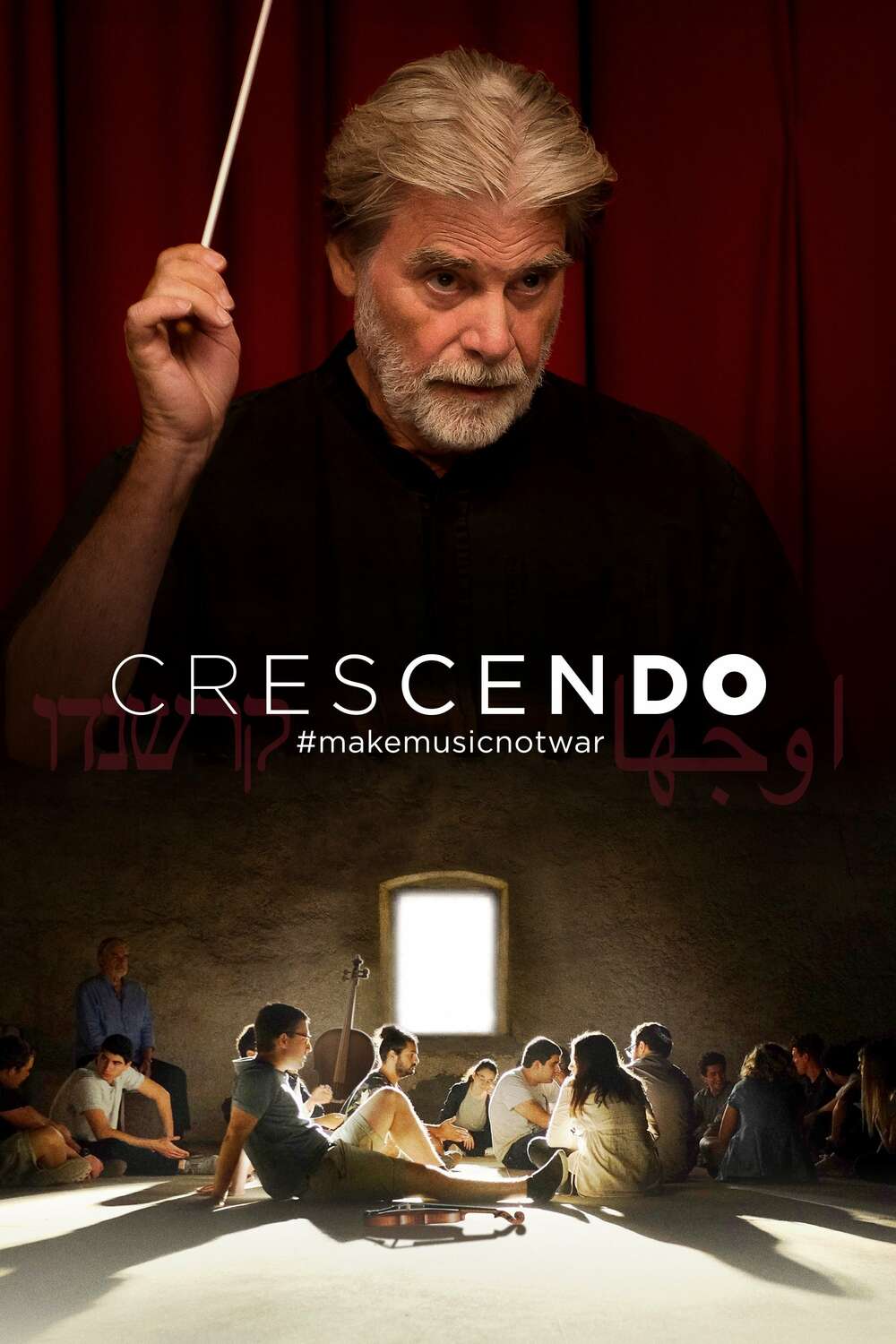
Documentary
Crescendo, 2019
When world-famous conductor Eduard Sporck accepts the job to create an Israeli-Palestinian youth orchestra, he is quickly drawn into a tempest of sheer unsolvable problems.
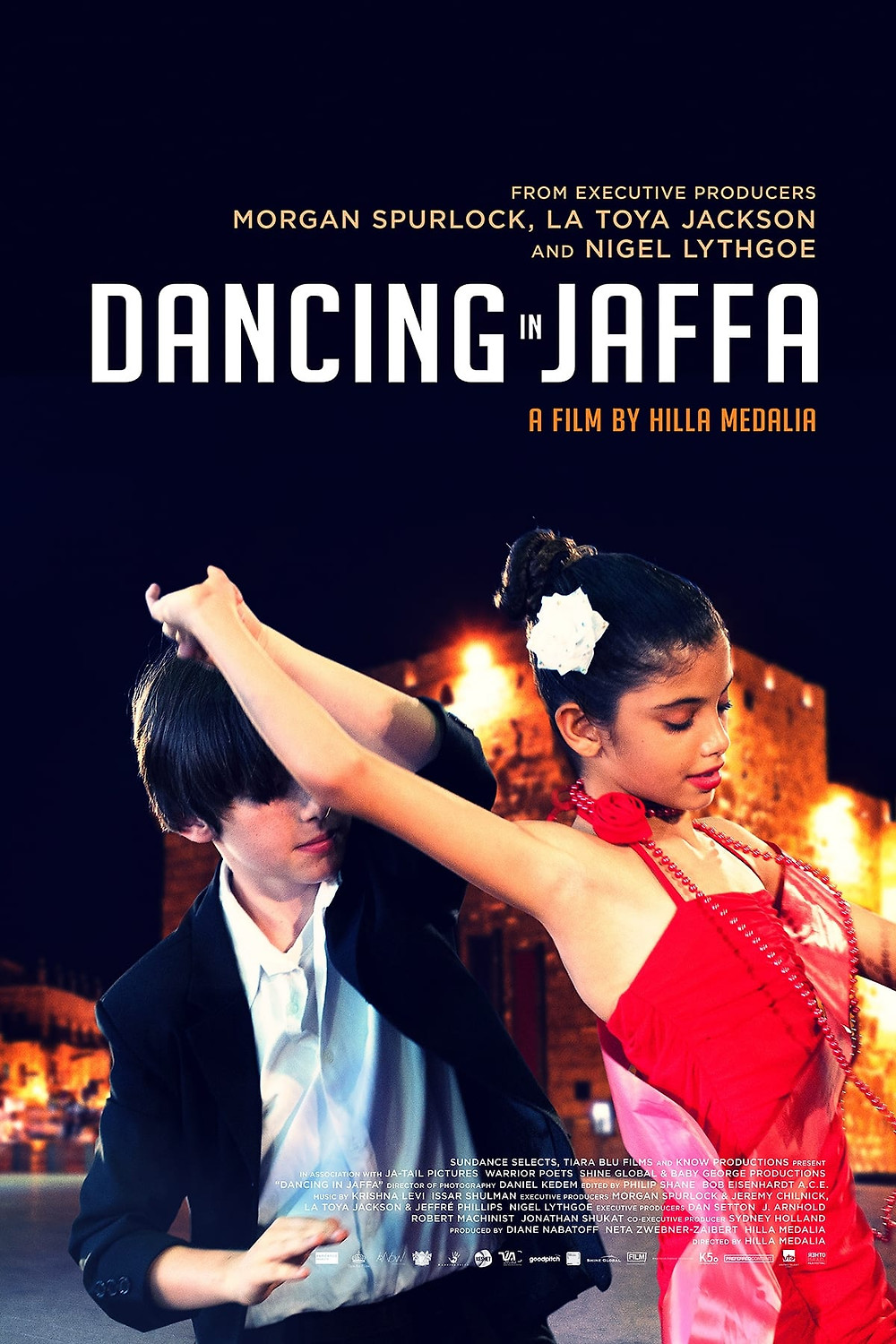
Documentary
Dancing in Jaffa, 2013
Pierre Dulaine, an internationally renowned ballroom dancer, is starting to fulfill his life long dream - to take his program Dancing Classrooms to Jaffa, where he was born. He is teaching 10-year-old Israeli-Palestinian and Israeli-Jewish children to dance together. Pierre recognizes that the future is built by children. By breaking the syndrome of hatred, he will change their lives, and hopefully, the community around them.
© 2024 All Rights Reserved.